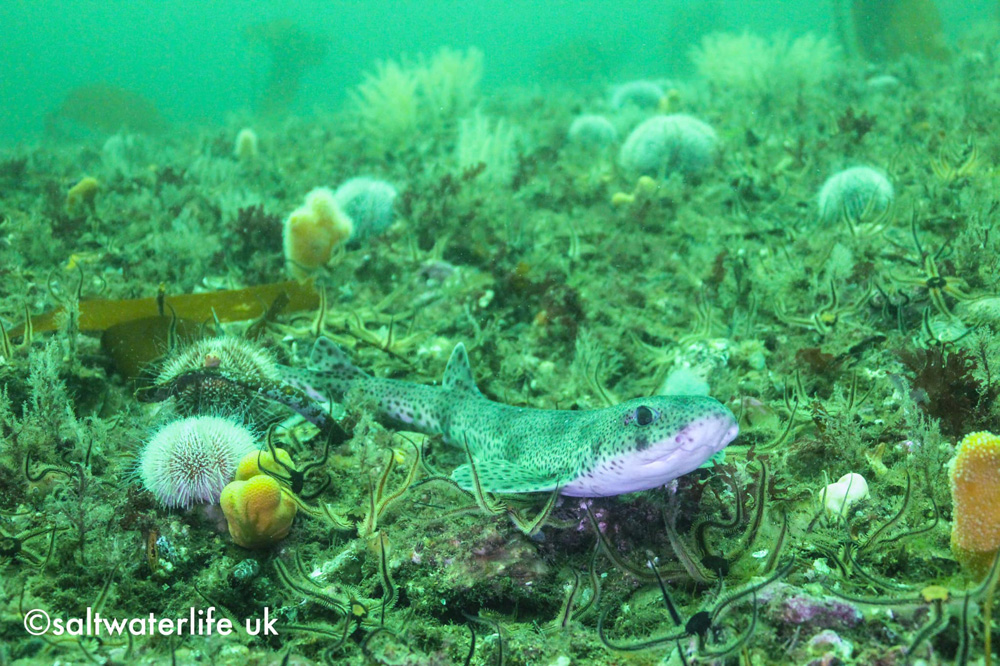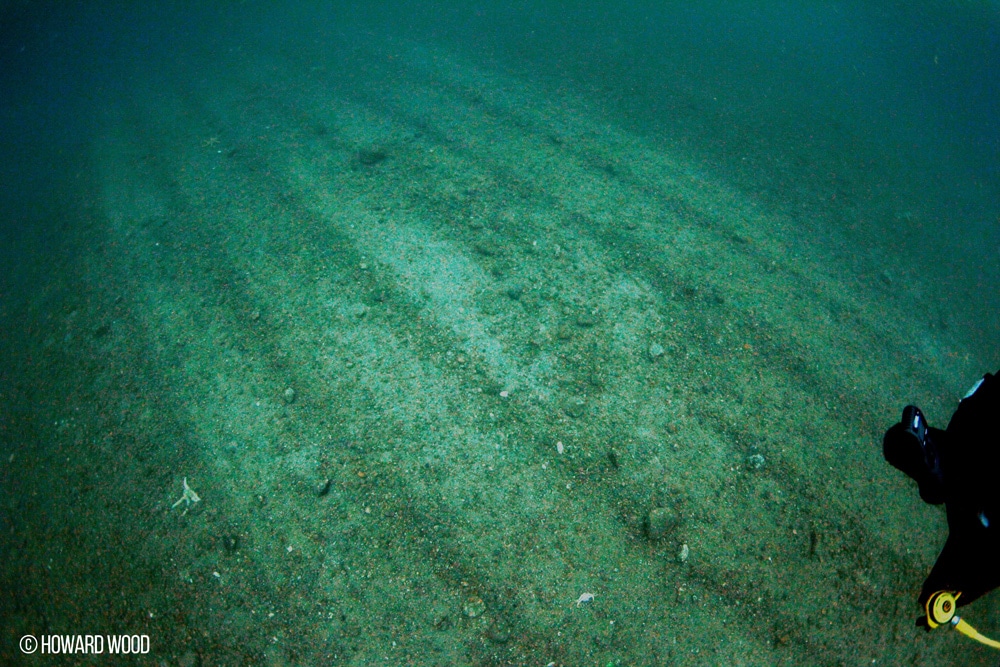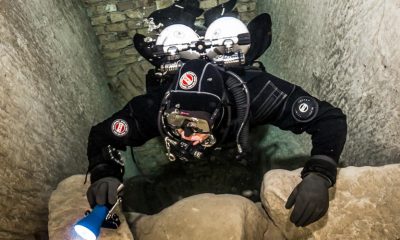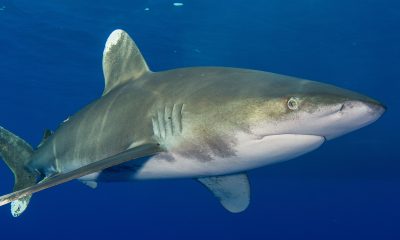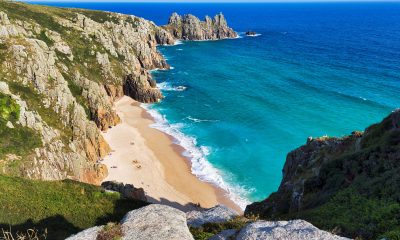Marine Life & Conservation
Habitat and fisheries decline sparks calls for coastal recovery
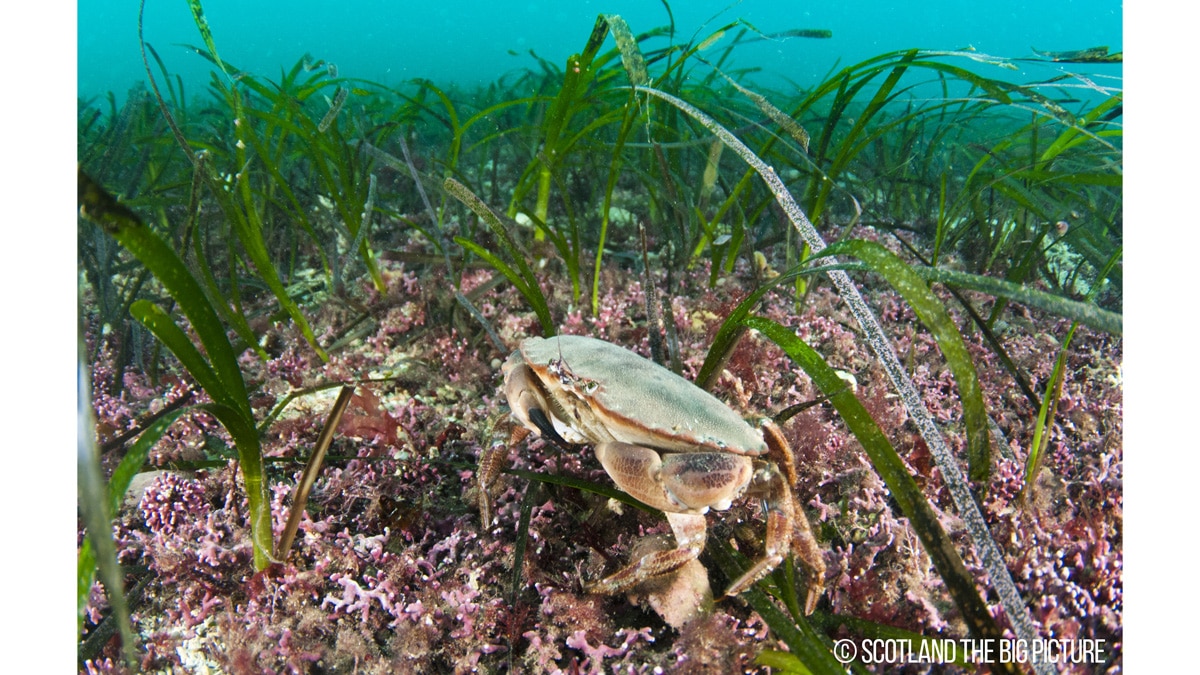
A new assessment reveals that carbon-rich seabed habitats are continuing to decline in the Highland and Islands region, prompting calls for urgent action by the Our Seas coalition.
According to the Scottish Marine Assessment 2020, many hectares of habitats around Scotland’s coasts have been lost in the last ten years alone. A campaign to recover the health of Scotland’s coastal seas has now gathered momentum with over 90 concerned organisations and local businesses calling on the Scottish Government to take urgent action to halt and reverse the damage being done to our inshore seabeds by bottom-towed fishing gear. The coalition supports the reinstatement of an inshore limit on bottom-trawling to recover the health of Scotland’s fish populations and safeguard sustainable fisheries.
The Our Seas coalition was established in response to decades of decline in Scotland’s inshore fisheries and in particular steep declines in the spawning stock of fish such as cod and whiting on the west coast, as a result of a century-long ban on bottom-trawling within three miles of the shore being removed in 1984. In less than a year, over 90 community groups, businesses and national organisations have joined the Our Seas coalition.
The members of Our Seas coalition argue that recovery of fish populations and habitats is impossible unless the causes of those declines are addressed by the Scottish Government and that the pressures of Brexit and the covid pandemic are laying bare long-standing problems in the health of Scotland’s fisheries. The coalition is now raising further public awareness and has launched a new documentary film ‘The Limit.’
Ailsa McLellan coordinator of Our Seas said: “We have accepted the chronic decline in our fisheries for too long; now we must address the causes.This is a hidden biodiversity crisis on our doorstep, some of the habitats being lost are significant carbon sinks, they must be protected and allowed to recover. There is overwhelming evidence that coastal nursery and spawning grounds are damaged by bottom towed fishing gear, and that this has directly contributed to a decline in marine life and the historical collapse of many fish populations. These declines are the fault of ineffective fisheries management, not the fishermen. Declines cannot be reversed until the Scottish Government reintroduces spatial management and incentivises a transition away from the use of intensive fishing gears close to shore”.
“Brexit and the pandemic have exposed the desperate situation for our coastal fisheries who currently have little chance to diversify. Many within the inshore fleet now rely on shellfish, when in the past they would have been able to catch a variety of fish species. Conservation need not be at the expense of jobs, there are examples at home and internationally of conservationists and fishermen working together to benefit both fisheries, communities and the environment.’’
The calls for coastal recovery, organised by the Our Seas coalition, has been further boosted by a judge’s ruling last month that the Scottish Ministers acted illegally in rejecting a proposed fisheries no-trawl pilot scheme off the coast of Skye. The pilot was designed to provide important evidence on the ecological and economic benefits of lower impact creel fishing when compared to bottom-trawl fishing.
In a case brought by the Scottish Creel Fishermen’s Federation (SCFF), High Court Judge Lady Poole said Ministers had not taken into account their own guidance and instructed them to “properly reconsider” the scheme. The SCFF had claimed Marine Scotland had listened only to opposition from the trawling industry. In the face of further ministerial resistance, Lady Poole this week said she would, if necessary, order them to take action.
Alistair Philp of SCFF, which took the case said “The evidence that this Pilot will provide will greatly add to our understanding of how restricting the use bottom-towed fishing gears can have very positive economic as well as environmental benefits and I would urge the Scottish Ministers to give it the go-ahead. This could provide a template for how to sustainably manage and revive our inshore fisheries.”
The ruling follows the publication in January of an economic report by SCFF which gives a detailed account of how an inshore limit on trawl activity could add another 450 creel boats and thousands of new high quality fishing jobs.
Our Seas is currently organising a public petition which can be signed on its website https://www.ourseas.scot
Marine Life & Conservation
Leading UK-based shark conservation charity, the Shark Trust, is delighted to announce tour operator Diverse Travel as a Corporate Patron

 Corporate Patrons provide a valuable boost to the work of The Shark Trust. The Trust team works globally to safeguard the future of sharks, and their close cousins, the skates and rays, engaging with a global network of scientists, policymakers, conservation professionals, businesses and supporters to further shark conservation.
Corporate Patrons provide a valuable boost to the work of The Shark Trust. The Trust team works globally to safeguard the future of sharks, and their close cousins, the skates and rays, engaging with a global network of scientists, policymakers, conservation professionals, businesses and supporters to further shark conservation.
Specialist tour operator Diverse Travel has operated since 2014 and is committed to offering its guests high quality, sustainable scuba diving holidays worldwide. Working together with the Shark Trust will enable both organisations to widen engagement and encourage divers and snorkellers to actively get involved in shark conservation.
“Sharks are truly at the heart of every diver and at Diverse Travel, we absolutely share that passion. There is nothing like seeing a shark in the wild – it’s a moment that stays with you forever!” says Holly Bredin, Sales & Marketing Manager, Diverse Travel.
“We’re delighted to celebrate our 10th year of business by becoming a Corporate Patron of the Shark Trust. This is an exciting partnership for Diverse and our guests. We will be donating on behalf of every person who books a holiday with us to contribute towards their vital shark conservation initiatives around the world. We will also be working together with the Trust to inspire divers, snorkellers and other travellers to take an active role – at home and abroad – in citizen science projects and other activities.”
Paul Cox, CEO of The Shark Trust, said:
“It’s an exciting partnership and we’re thrilled to be working with Diverse Travel to enable more divers and travellers to get involved with sharks and shark conservation. Sharks face considerable conservation challenges but, through collaboration and collective action, we can secure a brighter future for sharks and their ocean home. This new partnership takes us one more valuable step towards that goal.”
For more information about the Shark Trust visit their website here.
For more about Diverse Travel click here.
Marine Life & Conservation
Shark Trust Asks Divers to help with Shark Sightings this Global Citizen Science Month

 Whether you are stuck for ideas of what to do with the kids or are off on the dive trip of your dreams. You can get involved in Citizen Science Month and help the Shark Trust by providing vital data about sharks are rays both close to home and further afield.
Whether you are stuck for ideas of what to do with the kids or are off on the dive trip of your dreams. You can get involved in Citizen Science Month and help the Shark Trust by providing vital data about sharks are rays both close to home and further afield.
In addition to reporting the sharks and rays you see on your dives, the eggcases you find on the beach, the Shark Trust is looking for some specific data from divers who are asked to report any Oceanic Whitetip and Basking Sharks.
Oceanic Whitetip Sharks
The Shark Trust are looking specifically for Oceanic Whitetip Shark sightings over the coming weeks and months. So, if you are diving anywhere in the world, please report your sightings via the website or app.
Website: https://recording.sharktrust.org/
App: Search The Shark Trust in your app store
The Oceanic Whitetip. Known for their incredibly long dorsal and pectoral fins, this species was once the most abundant oceanic-pelagic species of shark on the planet.
Large and stocky, they are grey or brown above, and white below and famous for their huge rounded first dorsal fin and paddle-like pectoral fins. The fins also highly prized within the shark fin trade. Whilst they are mostly solitary, Oceanic Whitetips do occasionally hunt in groups.
An inquisitive species, they were easy prey for fisheries. Combined with their low reproductive rate, they were inevitably at high risk of population depletion. And declines of up to 99% have been reported in certain sea areas. They are listed as Critically Endangered on the IUCN Redlist (2019).
Conservation efforts to discourage further declines include listing on CITES Appendix II and CMS Appendix I. They’re also the only species prohibited from take by all the Tuna RFMOs (Regional Fisheries Management Organisations). However, these measures do not mean that Oceanic Whitetips are not still caught – whether targeted or as bycatch – in some parts of the world. With populations declining at such a high rate, effective implementation of management measures is essential to ensure that the species can recover.
If you are lucky enough to get an image of an Oceanic Whitetip and you record your sighting on the Shark Trust app or website YOU CAN WIN! All images submitted with sightings, that also give consent to use in conservation messaging, will be in with a chance to win an Oceanic Whitetip T-shirt and mug. The competition will run until the end of “Shark Month” in July – so keep those sightings (and images) coming in.
Basking Sharks
Basking Shark (Cetorhinus maximus) season is upon us, and the Shark Trust is asking everyone to keep an eye out for these majestic giants over the summer months. If you see any, you can record your sighting to the Basking Shark Sightings database.
Each year, these mighty fish return to British waters to feed on plankton. You may see one, (or a few if you’re really lucky) from around April-October. They can be seen feeding at the surface of the water, where they look like they’re basking in the sun. Thus, their name!
Sighting hotspots around the British Isles include southwest England, Isle of Man, north coast of Ireland, and western Scotland. The Sea of the Hebrides is the most prolific sightings area in Scotland, but they have been spotted all around the coast and have even ventured into some of the sea lochs. The Shark Trust has received thousands of sightings since the Basking Shark project began, but more data is needed to truly understand what is going on with population numbers and distribution. You can help by recording your sightings this summer.
Great Eggcase Hunt
The Shark Trust has an Easter Egg Hunt with a difference for you to try. Take part in the Great Eggcase Hunt and get involved with a big citizen science project that helps shark, ray and skate conservation. And it’s an enjoyable activity for all the family.
The Shark Trust also want snorkellers and divers to record their underwater eggcase findings. Underwater records help pinpoint exactly where sharks and skates are laying their eggs and can help link to beach records. Learning the depth and substrate that they lay on also helps better understand the species.
Find out more: https://www.sharktrust.org/great-eggcase-hunt
Whether you are diving, snorkelling or exploring on the beach you can take part in Citizen Science Month and get actively involved in shark and ray conservation. Find out more: www.sharktrust.org
-

 News3 months ago
News3 months agoHone your underwater photography skills with Alphamarine Photography at Red Sea Diving Safari in March
-

 News2 months ago
News2 months agoCapturing Critters in Lembeh Underwater Photography Workshop 2024: Event Roundup
-

 Marine Life & Conservation Blogs2 months ago
Marine Life & Conservation Blogs2 months agoCreature Feature: Swell Sharks
-

 Blogs2 months ago
Blogs2 months agoMurex Resorts: Passport to Paradise!
-

 Blogs2 months ago
Blogs2 months agoDiver Discovering Whale Skeletons Beneath Ice Judged World’s Best Underwater Photograph
-

 Gear News3 months ago
Gear News3 months agoBare X-Mission Drysuit: Ideal for Both Technical and Recreational Divers
-

 Gear Reviews2 months ago
Gear Reviews2 months agoGear Review: Oceanic+ Dive Housing for iPhone
-

 Marine Life & Conservation2 months ago
Marine Life & Conservation2 months agoSave the Manatee Club launches brand new webcams at Silver Springs State Park, Florida


